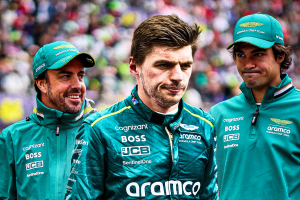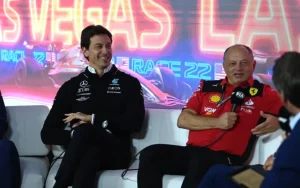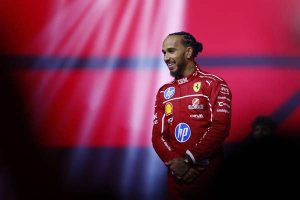JUST IN : Growing F1 popularity in the USA averts threats from other sports

Rising F1 Popularity in the U.S. Reduces Competition from Other Sports
Formula 1 CEO Stefano Domenicali has confirmed the sport’s growing popularity in the United States, successfully overcoming competition from other sports that share its fan base. This rise in popularity has been the result of a deliberate strategy, beginning with the introduction of the United States Grand Prix in Austin in 2012. Since then, F1 has steadily gained traction, especially following Liberty Media’s acquisition of the sport in 2017.
A pivotal moment in this growth was the release of Netflix’s “Drive to Survive” in 2019, a docuseries that provided viewers with a behind-the-scenes look at the intense politics, rivalries, and personal dramas that unfold over a Formula 1 season. The show’s success attracted a broader American audience, sparking a surge of interest in the sport.
The addition of the Miami Grand Prix in 2022, and the debut of the Las Vegas Grand Prix in 2023, further cemented F1’s presence in the U.S. The Las Vegas race, in particular, captured attention with its nighttime street race through the iconic Strip, blending entertainment with high-speed racing.
However, 2023 saw a decline in Formula 1 viewership and social media engagement, largely attributed to Red Bull’s dominance, as the team won 21 of the 22 Grands Prix. Despite this, the sport’s overall response indicates that it has firmly established itself among U.S. fans. Domenicali emphasized that F1 no longer faces direct competition from other sports, particularly those involving four wheels.
Speaking to BBC Sport, Domenicali reflected on how quickly F1’s presence in the U.S. has expanded: “Just a few years ago, we were struggling to have one race. Now, we’ve gone from one to three, and the attention is growing dramatically.” He also noted that F1’s audience is not only interested in sports but also engages with movies and events, making it crucial for F1 to think beyond traditional motorsport competition.
Domenicali stressed the importance of F1 being an inclusive platform that people worldwide enjoy. He wants the sport to continue fostering a spirit of competition and respect both on and off the track, positioning F1 as a model for other industries to follow.
Looking ahead, Domenicali shared his vision for Formula 1 in the next decade. He sees F1 as a continued blend of entertainment and technological innovation, where fans gather to watch exciting on-track battles. He also envisions F1 as an inclusive platform that caters to both die-hard fans and newcomers to the sport, emphasizing the importance of staying engaged with changing communication methods and technological advancements.
Sustainability is another key area Domenicali highlighted, noting that F1 has already made significant strides in this direction. He expressed optimism about F1’s future, stating, “In 10 years, we will still be a great platform for entertainment and technological challenges, engaging with fans and providing jobs and opportunities for the communities we are in.”
In summary, Domenicali believes that by embracing technological, entertainment, and sustainability initiatives, Formula 1 will remain a powerful global force, continuing to grow and evolve as it listens to and involves its diverse audience.







